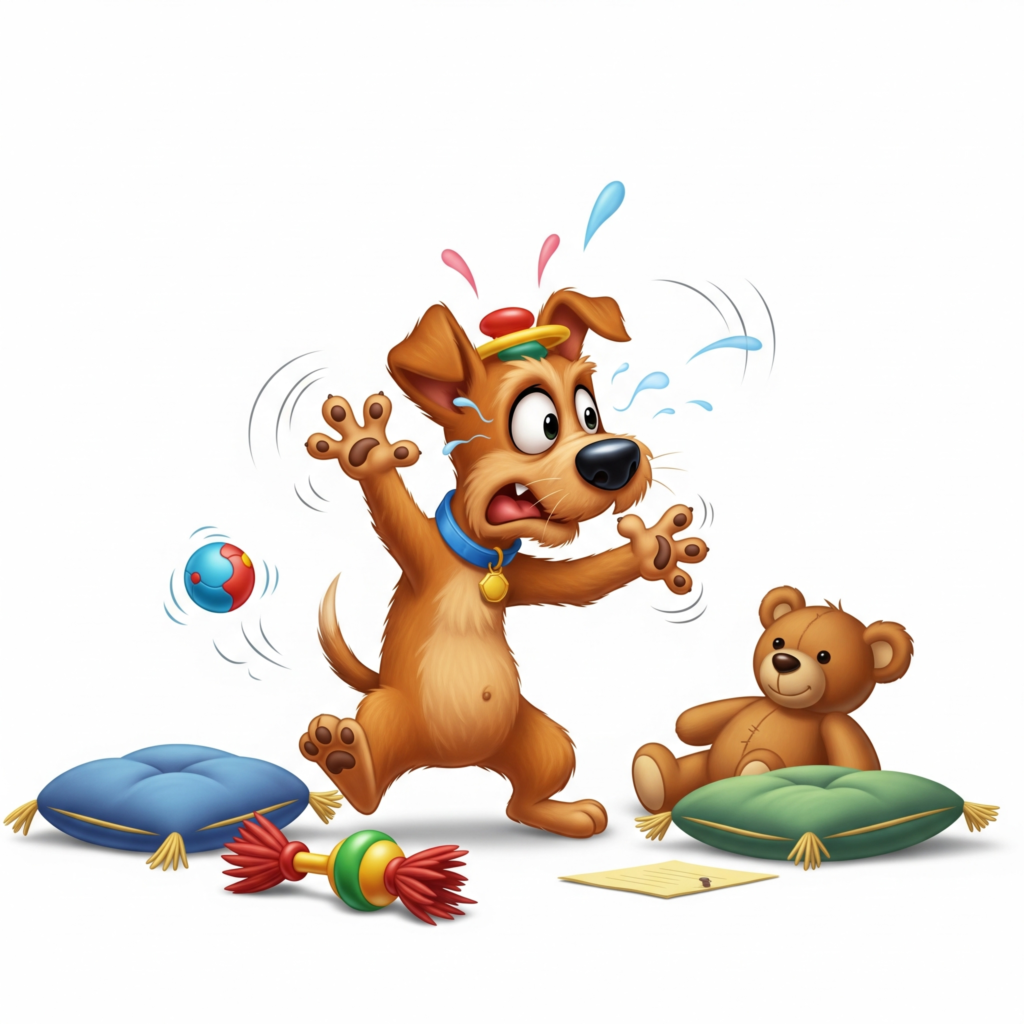
Puppies are full of energy, curiosity, and excitement, but there’s a fine line between healthy activity and overstimulation. Just like young children, puppies can easily become overwhelmed by too much noise, attention, or activity in their environment. Knowing how to recognize the signs of overstimulation and how to help your puppy calm down is essential for building a healthy, stress-free home routine.
What Is Overstimulation in Puppies?
Overstimulation occurs when a puppy is exposed to too much sensory input—whether it’s loud noises, excessive movement, constant play, or being passed around by people. Unlike adults, puppies have not yet developed strong coping mechanisms. Too much at once can lead to hyperactivity, anxiety, or even behavioral issues if not addressed consistently.
Common Signs of an Overstimulated Puppy
Every puppy responds differently, but here are some signs that your puppy might be overstimulated at home:
1. Zoomies That Won’t Stop
While the occasional burst of energy (zoomies) is normal, excessive or prolonged zooming, especially paired with signs of stress, may signal overstimulation.
2. Nipping or Biting More Than Usual
If your puppy starts biting harder or more frequently than normal, especially during or after playtime, it could be due to sensory overload.
3. Barking Without Obvious Triggers
Sudden barking at nothing in particular—especially indoors—can mean your puppy is too stimulated to focus or settle down.
4. Difficulty Settling Down
An overstimulated puppy will often pace, whine, or try to engage constantly, even when it’s time to rest.
5. Jumping and Climbing on Furniture or People
This is often a sign your puppy doesn’t know how to release pent-up energy in a calm way.
6. Excessive Panting Without Exercise
If your puppy is panting but hasn’t recently been exercising or is in a cool environment, it may be a sign of stress caused by overstimulation.
7. Avoidance or Hiding
Some puppies react to overstimulation by withdrawing. If your puppy suddenly goes to hide under furniture or seems nervous, the environment may be too much for them.
What Causes Overstimulation at Home?
Even the most loving homes can accidentally overwhelm a puppy. Common causes include:
- Too many people interacting with the puppy at once
- Loud music, TV, or household appliances
- Unstructured or prolonged play sessions
- Inconsistent sleep and rest schedules
- High-energy children or other pets
- Too many new toys, smells, or treats in a short time
How to Help Your Puppy Recover and Regulate
Create a Quiet Space
Designate a safe, quiet area where your puppy can retreat and relax. A crate with soft bedding or a tucked-away puppy bed works well.
Stick to a Routine
Puppies thrive on predictability. Keep feeding, potty, play, and nap times consistent to help regulate energy levels.
Balance Play and Rest
For every energetic play session, build in time for calm bonding or independent rest. Puppies need far more sleep than most owners expect—often 16 to 20 hours a day.
Limit Exposure to Overwhelming Stimuli
If you know your home is especially noisy or busy at certain times of day, create barriers or boundaries where your puppy won’t be disturbed.
Use Calming Toys or Chews
A frozen chew toy or stuffed treat puzzle can encourage your puppy to self-soothe and redirect energy in a calm way.
When to Seek Help
If your puppy seems constantly hyper, anxious, or difficult to calm even in quiet environments, consider speaking with your vet or a professional trainer. Some behaviors may need early behavioral support or deeper environmental adjustments.
A Happier Home for You and Your Puppy
Recognizing the signs of overstimulation and knowing how to respond is a crucial part of puppy parenting. By providing structure, calm spaces, and predictable routines, you’ll set your puppy up for emotional balance as they grow—and create a more peaceful home for you both.
Would you like this adapted into a downloadable handout or included in a “Puppy Life Skills” blog series for PetsDogPuppy?
